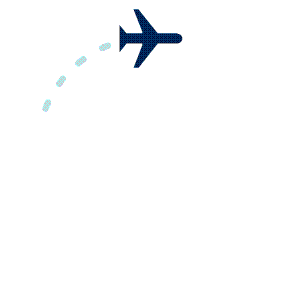Unleash Your Wild Side: The Ultimate Guide to Africa Safari Tours
Are you ready to embrace the exhilarating adventure that only an African safari can provide? From the stunning landscapes of the Serengeti to the vibrant wildlife of Kruger National Park, Africa offers unparalleled experiences for every nature lover. This guide will help you discover the best tour packages, local attractions, and useful travel tips to ensure you make the most of your safari experience.
Why Choose an Africa Safari Tour?
Africa is home to some of the most breathtaking landscapes and incredible wildlife on the planet. Opting for a safari tour allows you to explore these wonders in a safe, structured, and comfortable way. Experienced guides will navigate the parks, ensuring you don’t miss any of the iconic animals, such as the Big Five: lions, elephants, buffalo, leopards, and rhinoceros.
Top Africa Safari Destinations
1. Serengeti National Park, Tanzania
The Serengeti is synonymous with safari. Known for its annual wildebeest migration, this park is a must-visit for wildlife enthusiasts. Book a package that includes game drives and hot air balloon rides for unique perspectives on the vast savannah.
2. Kruger National Park, South Africa
Kruger National Park is one of Africa’s largest game reserves. With various safari options available, you can choose between self-drive or guided tours. Don’t miss the chance to explore the park’s diversity — from grasslands to dense bushveld.
3. Maasai Mara National Reserve, Kenya
Famous for its large populations of lions and the Great Migration, the Maasai Mara is a dream for photographers. Opt for a luxury tented camp tour to immerse yourself in the wild, dining under the stars.
4. Chobe National Park, Botswana
If you love elephants, Chobe is the place to be! It boasts one of the largest elephant populations in Africa. A boat safari along the Chobe River allows you to view these majestic animals up close while enjoying stunning sunsets.
Travel Tips for a Successful Safari
Packing Essentials
- Clothing: Lightweight, breathable fabrics in neutral colors are ideal for blending into the environment.
- Binoculars: Essential for spotting distant wildlife.
- Camera: Bring a good camera with zoom capability to capture stunning wildlife shots.
- Sunscreen and Insect Repellent: Protect yourself from sunburn and insect bites.
Health Considerations
Ensure you consult your doctor about vaccinations and anti-malarial medications before traveling. Carry a basic first aid kit for emergencies while on safari.
Best Time to Visit
The best time for a safari generally ranges from May to October, the dry season, when animals congregate around water sources, making them easier to spot. However, the rainy season (November to April) can offer unique experiences, such as lush landscapes and baby animals.
Exclusive Travel Deals
Many tour operators offer package deals that can greatly reduce travel costs. Look for deals that include:
- Accommodation: Lodges, tented camps, and budget hostels.
- Meals: Full-board options are often available.
- Activities: Game drives, guided bush walks, and cultural experiences.
Booking your safari during off-peak seasons can also provide discounts. Always compare different tour providers to find the best offers.
Conclusion
An African safari is an extraordinary adventure that promises unforgettable memories. By carefully selecting your destinations, packing wisely, and taking advantage of travel deals, you can unleash your wild side and experience the incredible beauty of the African landscape and its wildlife. Whether you are surrounded by the roars of lions or the calls of birds, each moment spent on safari is sure to exhilarate and inspire.
FAQs
1. What is the best time for an Africa safari?
The best time to go on an African safari is during the dry season, which typically runs from May to October. This is when wildlife is more active and easier to spot.
2. What vaccinations do I need for an African safari?
Consult your healthcare provider about vaccinations for diseases such as yellow fever, typhoid, and hepatitis A. Anti-malarial medication is also strongly recommended.
3. How much does an Africa safari cost?
Costs can vary significantly depending on the destination, type of safari, and accommodations. Budget options can start at around $150 per day, while luxury packages can exceed $1,000 per day.


